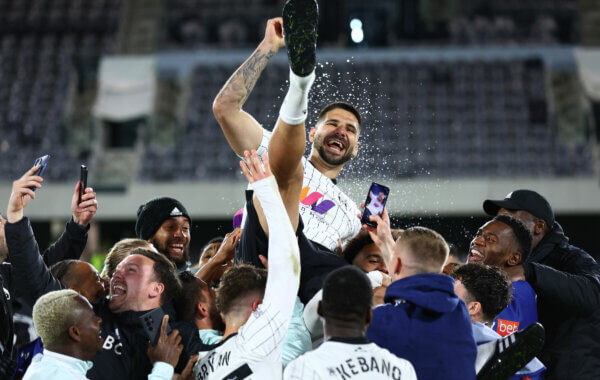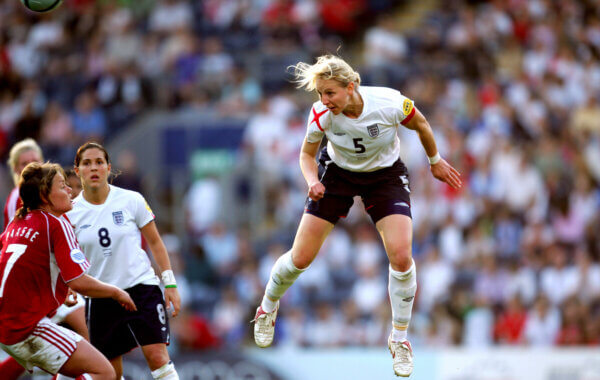Former Premier League referee and Harrow housemaster looks at how the world has changed for match officials over the years.
It dawned on me from a young age that I would only ever be a second-tier footballer. Not content to watch from the sidelines, I turned to refereeing as a way of maintaining an active involvement in the game. I would referee my friends at the local recreational ground and then I decided to join the Dover Referees’ Association.
I was actually too young to be an official referee at the time, so they would send me to games where they didn’t have one and I would “volunteer” on the spot. Aged only 13 and taking charge of a proper men’s game was a steep learning curve! I felt like a bit of an outlaw.
A lot has changed between then and now, though. When I started it was very much an amateur level, but nowadays the referees are assigned mentors, coached the whole way through, and frankly the whole process has become much more professional and scientific. As a referee now, you are trained in everything you do. At the highest level, full-time fitness coaches prescribe you programmes that virtually tell you what to do one or two days before and after a match.
There are polar heart-rate monitors connected to your watch so your fitness coach can track exactly what you’ve done and monitor your exercise levels. There can be no lying about your training, that’s for sure. You can’t even give your watch to someone else as it monitors your resting heart beat and your coach would know it wasn’t you using it.
As you can see, the top referees train as much as the players. There are regular eye tests too. It’s not just about whether you can read a car registration from distance – your peripheral sight is tested too. There’s an exam where they shine different lights and you have to press certain buttons to determine what you’ve seen. There’s even training where you can improve your vision, believe it or not. All this is so important, because although you’ve got the best view in the house, you need all your wits and senses about you to stay on top of your game.
For me, it has all been a worthwhile sacrifice. There is undeniably plenty of abuse in the game, both on the field and online, but there are plenty of great moments too. You have to balance the highs and lows and naturally, like any job in the public eye, the highs can be very high and the lows equally so.
The scrutiny placed on referees these days means it can be easier to criticise them than before, although away from the heat of battle most people recognise that referees are people to be respected and in most cases make fewer mistakes than the players. I have a now rather famous saying: “When I’m right nobody remembers and when I’m wrong nobody forgets.”
One thing I’m a strong advocate of is the use of VAR. As we’ve seen in rugby, it isn’t the answer to everything, as there will always be things you can argue about, but that’s part of the fun. In the end, there are always going to be teething problems, but you have to go through those if you want to see it succeed. One of the main criticisms is that it breaks up play, yet corners, free kicks and other stoppages typically amount to 25-30 minutes each game. VAR, on the other hand, only adds a few minutes.
Of course, all this stems from a reaction to the scrutiny of referees. One suggestion, which has worked very well in rugby, is to have the referee miked up. I was in charge of the first game to try this out, between Arsenal and Millwall in 1988. Without going too much into the details, it didn’t work out very well!
A comparison I make is when I look at how the boys at Harrow, where I used to teach, behaved while playing the respective sports. On the rugby field their manners were immaculate, while on the football pitch they behaved totally differently.
Of course it was nothing as bad at school, but it’s the perception of the culture, and the fundamental culture itself, that affects their behaviour. There’s no doubt we are trying to improve it, but it will take a major overhaul from top to bottom.
The problem, however, is that once you bring money into a sport the behaviour changes. Giving a decision against a team isn’t just costing someone a game – rightly or wrongly, it’s perceived as taking money from someone’s pockets. As a result, rugby players have become far less respectful too.
Football’s greatest strength is also its greatest weakness: subjectivity. It causes the arguments. Part of the enjoyment, though, is going to the pub and having an argument with your mates over whether you think Arsenal should or should not have had a penalty. It’s part of the big attraction of football. It’s not sterile and it certainly isn’t black or white!
David Elleray MBE is the technical director of the International Football Association Board








